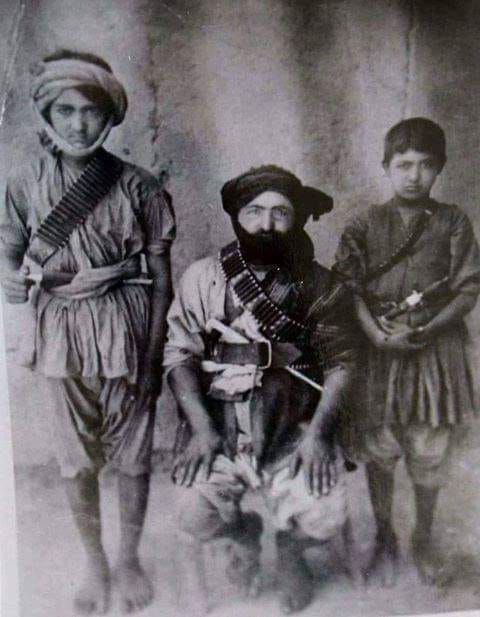|
Almara
Almara is a village in Khost Province, Afghanistan. It was the birthplace of Zadian chieftain Babrak Khan, and the winter home of his son, Mazrak Zadran Mazrak Khan Zadran (Pashto: زمرک خان ځدراڼ; 1900s – 1972) was a Zadran chieftain who fought against the Afghan government during the Afghan tribal revolts of 1944–1947 in order to support the restoration of King Amanullah Khan. S .... A report in 1980 described the Almara villagers as people who considered it polite to squat when one is taking a meal or when one is in the presence of his or her elderly relatives. References {{Khost Province Populated places in Khost Province ... [...More Info...] [...Related Items...] OR: [Wikipedia] [Google] [Baidu] |
Babrak Khan
Babrak Khan ( Pahsto: ببرک خان ځدراڼ; died ) was a Zadran chieftain who was the father of Said Akbar Babrak (assassin of the first Prime Minister of Pakistan, Liaqat Ali Khan) and of Mazrak Zadran (a rebel leader during the Afghan tribal revolts of 1944–1947). Biography Early life Babrak Khan born in Almara. He was the son of Mazar Khan (Pashto: مزرک خان). Babrak spent most of his early life in poverty. Chieftain In 1898, Babrak had under him five companies of Zadran Khasadars, whom he maintained on a contract system with emir Abdur Rahman Khan, but these were subsequently disbanded and their place taken by regular troops. According to Ludwig Adamec, he took part in quelling the Khost rebellion of 1912, even though the Zadran tribe (which he was supposedly chief of) was fighting against the Afghan government, according to the ''Britannica Year book 1913''. Zadrans burnt his tower in 1913. In 1917, he headed a deputation of leading Zadran Maliks whic ... [...More Info...] [...Related Items...] OR: [Wikipedia] [Google] [Baidu] |
Mazrak Zadran
Mazrak Khan Zadran (Pashto: زمرک خان ځدراڼ; 1900s – 1972) was a Zadran chieftain who fought against the Afghan government during the Afghan tribal revolts of 1944–1947 in order to support the restoration of King Amanullah Khan. Some sources render his first name as Mazarak or Zemarak. Personal life and appearance Mazrak was the eldest of the 9 or 18 sons of Babrak Khan, who was the Zadran chieftain at the time of Mazrak's birth. Among Mazrak's brothers was Saad Akbar Babrak. Mazrak's winter home was in the village of Almara. His appearance in 1951 was described as a "thickset man with a black beard" who "wore a brown embroidered woollen ''chugha'' (cloak) over his '' shalwar qamiz''". In 1972, he was described as a "typical rugged Pathan, confident of his appearance and bearing, soft-spoken, with an air of self-acquired nobility. He was in light brown shalwar kameez, black high Liaquat cap, black shoes, dyed beard and moustache." Chieftain Mazrak came to ... [...More Info...] [...Related Items...] OR: [Wikipedia] [Google] [Baidu] |
Khost Province
Khost (Pashto/Dari: ) is one of the 34 provinces of Afghanistan, located in the southeastern part of the country. Khost consists of thirteen districts and the city of Khost serves as the capital of the province. To the east, Khost Province is bordered by North Waziristan and Kurram, which are districts in Pakistan’s Khyber Pakhtunkhwa province. Historically, Khost used to be a part of Paktia, and the larger region surrounding Khost is still referred to as Loya Paktia. Throughout history, the province has been the site of numerous rebellions, leading to the local Pashtun populace to consider themselves the “traditional king-makers in Kabul”. The province was previously known as the Southern Province, and was united with neighbouring Paktia. Khost is also home to numerous Universities, including Shaikh Zayed University, which is the only University in Afghanistan with a faculty in computer science. As of 2021, it was estimated that the population of the province stood at ... [...More Info...] [...Related Items...] OR: [Wikipedia] [Google] [Baidu] |
Provinces Of Afghanistan
Afghanistan is divided into 34 provinces (, '' wilåyat''). The provinces of Afghanistan are the primary administrative divisions. Each province encompasses a number of districts or usually over 1,000 villages. Provincial governors played a critical role in the reconstruction of the Afghan state following the creation of the new government under Hamid Karzai. According to international security scholar Dipali Mukhopadhyay, many of the provincial governors of the western-backed government were former warlords who were incorporated into the political system. Provinces of Afghanistan Regions of Afghanistan UN Regions Former provinces of Afghanistan During Afghanistan's history it had a number of provinces in it. It started out as just Kabul, Herat, Qandahar, and Balkh but the number of provinces increased and by 1880 the provinces consisted of Balkh, Herat, Qandahar, Ghazni, Jalalabad, and Kabul. * Southern Province – dissolved in 1964 to create Paktia Provinc ... [...More Info...] [...Related Items...] OR: [Wikipedia] [Google] [Baidu] |
Afghanistan
Afghanistan, officially the Islamic Emirate of Afghanistan,; prs, امارت اسلامی افغانستان is a landlocked country located at the crossroads of Central Asia and South Asia. Referred to as the Heart of Asia, it is bordered by Pakistan to the Durand Line, east and south, Iran to the Afghanistan–Iran border, west, Turkmenistan to the Afghanistan–Turkmenistan border, northwest, Uzbekistan to the Afghanistan–Uzbekistan border, north, Tajikistan to the Afghanistan–Tajikistan border, northeast, and China to the Afghanistan–China border, northeast and east. Occupying of land, the country is predominantly mountainous with plains Afghan Turkestan, in the north and Sistan Basin, the southwest, which are separated by the Hindu Kush mountain range. , Demographics of Afghanistan, its population is 40.2 million (officially estimated to be 32.9 million), composed mostly of ethnic Pashtuns, Tajiks, Hazaras, and Uzbeks. Kabul is the country's largest city and ser ... [...More Info...] [...Related Items...] OR: [Wikipedia] [Google] [Baidu] |


